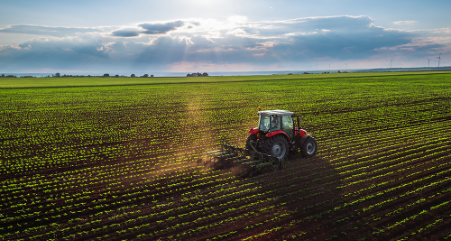
When discussing plant nutrition, most people are familiar with NPK. We see this content prominently displayed on bags of fertilizer at retail locations. But macronutrients for plants goes beyond NPK. Calcium (Ca), magnesium (Mg), and sulfur (S) make up secondary macronutrients for plants. These nutrients are as important as NPK, but are needed in slightly lower quantities.
Calcium helps to support a plant’s structural integrity, regulate metabolic processes, and take part in various signaling pathways that are critical for successful growth. Ca plays a vital role in root development and cell wall integrity, helping to reduce soil erosion and aid plants in harsh conditions. Ca also helps to regulate the uptake of other essential nutrients such as nitrogen and phosphorus. Ca works within the plant to produce enzymes, hormones, and other metabolic elements, which are necessary for sustained growth.
Magnesium is an essential nutrient for plant growth and development. It plays a key role in photosynthesis by helping with the formation of chlorophyll. Mg also works to regulate the uptake and movement of other important nutrients within the plant. By helping plants resist stress from drought, high temperatures, and diseases, Mg ensures plants will be able to reach their best potential growth and yield.
Sulfur assist plants in creating three essential amino acids necessary for building proteins: methionine, cysteine, and cystine. S is also involved in the formation of chlorophyll, which is used in photosynthesis. Low sulfur levels can lead to stunted growth, yellowing of leaves, and poor fruit production. On the other hand, too much sulfur can damage the roots and leaves, and can even cause the death of the plant.
So how do you know if any of your plants need Ca, Mg, or S supplements?
Calcium and magnesium deficiency, for example, are common soil issues often caused by conditions like poor drainage, soil acidity, or low levels of organic matter. Adding the right type of fertilizer can combat these issues.
Soil testing is key. Taking a sample of the soil and having the chemical components analyzed will tell you what nutrients may be too high or low for the plants you are trying to grow. By consulting an agronomist at your local fertilizer retailer, you will be able to select the best soil nutrient to meet your planting needs.



